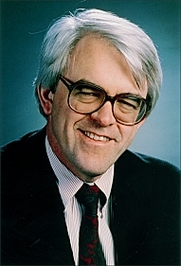A Quote by Audre Lorde
Of all the art forms, poetry is the most economical. It is the one which is the most secret, which requires the least physical labor, the least material, and the one which can be done between shifts, in the hospital pantry, on the subway, and on scraps of surplus paper. ... poetry has been the major voice of poor, working class, and Colored women. A room of one's own may be a necessity for writing prose, but so are reams of paper, a typewriter, and plenty of time.
Quote Topics
Related Quotes
Art and poetry cannot do without one another. Yet the two words are far from being synonymous. By Art I mean the creative or producing, work-making activity of the human mind. By Poetry I mean, not the particular art which consists in writing verses, but a process both more general and more primary: that intercommunication between the inner being of things and the inner being of the human Self which is a kind of divination (as was realized in ancient times; the Latin vates was both a poet and a diviner). Poetry, in this sense, is the secret life of each and all of the arts.
The question now becomes about defining your terms. What is literature? Unless we allow it to encompass the oral tradition from which it grew, which means taking it back to Homer and beyond, it demands the written word - poetry and prose. [Bob] Dylan is no slouch at the written word, both in its own right, and transcribed from his lyrics, which have often been acclaimed as poetry and may well stand up as such. But that is not his métier.
Poetry is the most direct and simple means of expressing oneself in words: the most primitive nations have poetry, but only quitewell developed civilizations can produce good prose. So don't think of poetry as a perverse and unnatural way of distorting ordinary prose statements: prose is a much less natural way of speaking than poetry is. If you listen to small children, and to the amount of chanting and singsong in their speech, you'll see what I mean.
Certainly for me prose has a dilatory capacity, insofar as I don't trust my abilities in prose. I imagine I could have done the same thing in poetry, but sometimes I feel more fluent in poetry than in prose, and as a consequence perhaps I might pass too quickly by a thing that I might, in prose, have struggled merely to articulate. That struggle creates space, and it seems to me a particular kind of space into which memory flows easily. I suspect I think better in poetry, however.
In the art of teaching, we recognize that ideas and insights need to cook over a period of time.
Sometimes the student who is least articulate about expressing the ideas is in fact the one who is absorbing
and processing them most deeply. This applies as well to our own private learning of our art form; the
areas in which we feel most stuck and most incompetent may be our richest gold mine of developing
material. The use of silence in teaching then becomes very powerful.
Poetry has an indirect way of hinting at things. Poetry is feminine. Prose is masculine. Prose, the very structure of it, is logical; poetry is basically illogical. Prose has to be clear-cut; poetry has to be vague - that's its beauty, its quality. Prose simply says what it says; poetry says many things. Prose is needed in the day-to-day world, in the marketplace. But whenever something of the heart has to be said, prose is always found inadequate - one has to fall back to poetry.





































